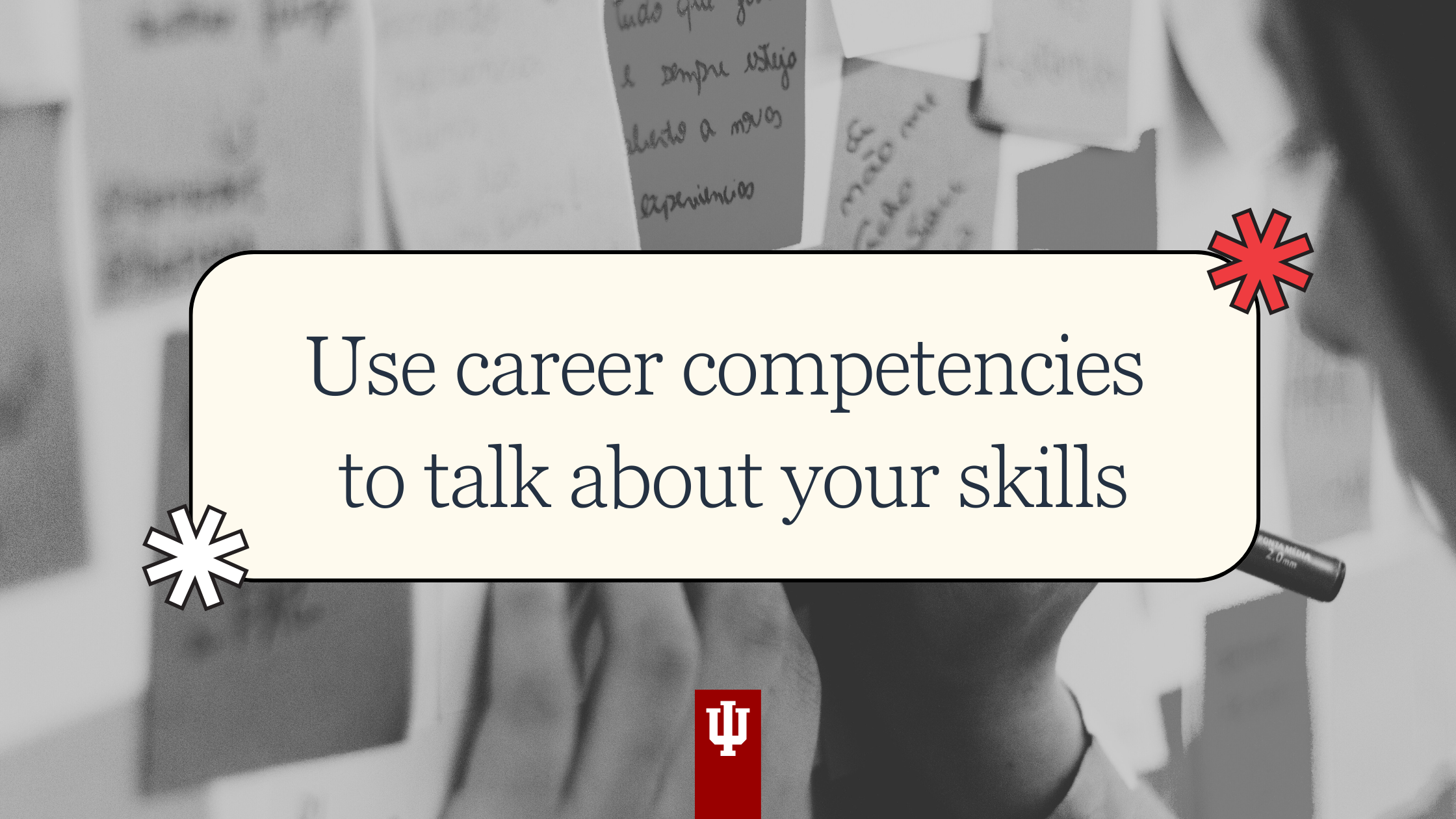We already know that you have the skills to succeed post-graduation. The question is, how do you talk about your skills and experiences in a way that makes sense to employers?
Your coursework in the College of Arts and Sciences teaches you twelve career competencies. Let's take a look at them and reflect on the skills you've developed for each one.
Reflection Questions
While you read about each competency and what it means, ask yourself:
- How have you developed it?
- What experiences (courses, jobs, internships, volunteer work) have most influenced your skill development?
- What skills do you have in this competency?
Career Competencies
Cultural & Intellectual Diversity
Demonstrate the awareness, attitude, knowledge, and skills required to equitably engage and include people from different local and global cultures.
Communication
Clearly and effectively exchange information, ideas, facts, and perspectives with persons inside and outside of an organization.
Teamwork & Collaboration
Build and maintain collaborative relationships to work effectively toward common goals, while appreciating diverse viewpoints and shared responsibilities.
Leadership & Influence
Recognize and capitalize on personal and team strengths to achieve organizational goals.
Digital Literacy
Understand and leverage technologies ethically to enhance efficiencies, complete tasks, and accomplish goals.
Professionalism & Career Management
Understand and demonstrate effective work habits. Act in the interest of the larger community and workplace. Proactively develop oneself and one’s career through continual personal and professional learning, awareness of one’s strengths and weaknesses, navigation of career opportunities, and networking to build relationships.
Critical Thinking
Identify and respond to needs based upon an understanding of situational context and logical analysis of relevant information.
Applied Problem Solving
The process of designing, evaluating and implementing a workable strategy to achieve a goal.
Ethical Reasoning
Recognizing ethical issues arising in a variety of settings or social contexts, reflecting on the ethical concerns that pertain to the issue, and choosing a course of action based on these reflections.
Creativity and Innovation
Generating new, varied and unique ideas, and making connections between previously unrelated ideas. Combining established elements in a new way to create something new.
Community Engagement
Develop a consciousness about one's potential contributions and roles in the many communities one inhabits, in person and online, and takes action accordingly.
Resourcefulness, Self-Learning and Adaptability
Set a foundation for long-term learning built on resilience and curiosity with an emphasis on applied problem solving and navigating diverse settings and varied challenges.
You’re developing skills every day— whether you're writing a research paper, leading a student organization, working a part-time job, or participating in community service. The key is recognizing those moments of growth and learning how to articulate them to future employers.
Take time to reflect on each of these competencies and consider where you’ve seen yourself grow. Once you can identify your strengths and experiences, you’ll be better prepared to showcase them on your resume, in interviews, and throughout your career.
Remember: Career readiness isn’t just about what you’ll do after graduation—it’s about how you’re growing right now. Every experience counts, and every skill you build brings you one step closer to your professional goals.
❤️, The Walter Center for Career Achievement


